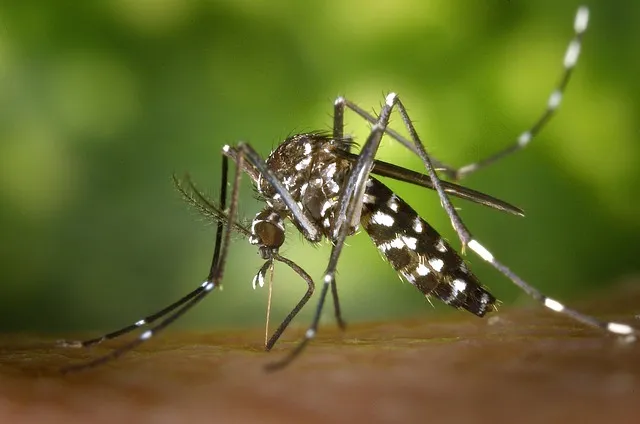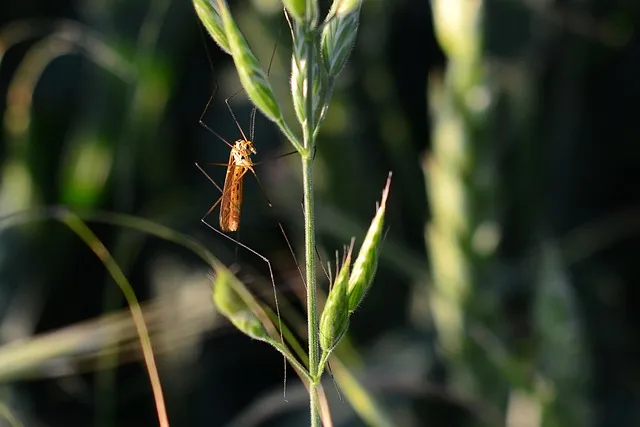Mosquitoes are a summer nuisance, requiring targeted mosquito control strategies. This involves understanding breeding habits, sealing entry points, using repellents, and eliminating standing water. Natural and chemical options exist, with the latter needing caution due to environmental risks. Physical barriers, like netting, and mosquito-repelling herbs further protect against bites. Maintaining a well-cared-for yard year-round is key, employing methods that balance community needs with ecological preservation through integrated mosquito management (IMM).
Looking for effective yard mosquito treatment? Understanding these persistent pests is the first step. This comprehensive guide explores various mosquito control methods, from identifying common entry points and leveraging natural repellents to implementing physical barriers and seasonal maintenance tips. Discover how to create an environment that discourages mosquitoes while considering community and environmental factors for a holistic approach to mosquito management.
Understanding Mosquitoes: Behavior and Habitat

Mosquitoes are tiny yet tenacious creatures that pose a significant nuisance, especially during warmer months. Understanding their behavior and habitat is crucial in implementing effective mosquito control. These insects thrive in standing water, as it serves as a breeding ground for their eggs. They prefer areas with dense vegetation or places offering shelter from wind and strong sunlight. Yards with stagnant water sources, such as birdbaths, buckets, or clogged gutters, can attract large numbers of mosquitoes, leading to increased bites and discomfort for outdoor activities.
Additionally, mosquitoes are most active during dawn and dusk, when they seek blood meals from hosts like humans and animals. Knowing these habits allows homeowners to plan their yard treatments accordingly. By eliminating breeding sites, using mosquito repellents, and implementing strategic yard treatments, individuals can significantly reduce mosquito populations, ensuring a more comfortable outdoor experience while enjoying their yards.
Identifying Common Yard Entry Points for Mosquitoes

Mosquitoes are adept at finding their way into yards, often using entry points that go unnoticed by homeowners. Identifying these points is a crucial step in effective mosquito control. Common access areas include gaps around pipes and cables entering your property, cracks in foundations or walls, open windows or doors without screens, and plant containers or other items left outdoors that provide potential breeding grounds. Even small openings can allow mosquitoes to enter and breed, leading to persistent infestations.
Regular inspections of your yard and home exterior are key to understanding where mosquitoes are gaining access. Once these entry points are identified, you can take targeted measures such as sealing gaps with caulk or weatherstripping, ensuring all doors and windows have secure screens, removing standing water from flowerpots and birdbaths, and maintaining landscaping to reduce hidden areas where mosquitoes might rest.
Natural Repellents and Their Effectiveness

Natural repellents have gained popularity as an alternative to chemical-based mosquito control methods. These organic solutions offer a safer and more environmentally friendly approach to managing mosquito populations. Essential oils like citronella, lavender, and peppermint are well-known for their mosquito-repelling properties and are commonly used in candles, sprays, and diffusers. The effectiveness of these natural repellents lies in their ability to mask human odors that mosquitoes find appealing, thus deterring them from landing and biting.
While natural repellents can be effective, their impact may vary based on factors like the time of day, wind patterns, and individual sensitivity. Some people might find that combining multiple organic repellents increases protection. Additionally, using these products responsibly and in conjunction with other mosquito control measures can significantly reduce bites and contribute to a more comfortable outdoor experience.
Chemical Mosquito Control Options

Chemical mosquito control options have long been a go-to for many homeowners seeking effective mosquito control. These methods involve the use of synthetic pesticides designed to kill or repel mosquitoes. Common chemicals used include organophosphates, pyrethroids, and carbamates. While these substances can be highly effective in reducing mosquito populations, they should be used with caution due to potential environmental and health concerns.
There are various forms of chemical applications, including sprays, foggers, and granular treatments. Fogging and spraying are typically quick but may require repeated applications for sustained mosquito control. Granular treatments, on the other hand, offer longer-lasting protection as they release chemicals slowly into the soil. It’s important to follow manufacturer instructions carefully and consider alternative methods if you have concerns about chemical exposure.
Implementing Physical Barriers for Mosquito Prevention

Implementing physical barriers is an effective way to prevent mosquitoes from entering your yard and causing discomfort. One simple yet powerful tool is mosquito netting, which can be hung over outdoor dining areas or patios. This barrier traps mosquitoes, keeping them away from your space while still allowing fresh air to circulate. For a more comprehensive approach, consider installing fine-mesh screens around your home’s perimeter, particularly in areas where mosquitoes are known to congregate, such as near standing water or dense vegetation.
These physical barriers form a crucial line of defense in mosquito control, as they actively restrict the insects’ access to human habitats. By blocking their entry points, you significantly reduce exposure to bites and associated health risks, providing a more comfortable outdoor experience for you and your family.
Planting Mosquito-Repelling Garden Herbs

Planting mosquito-repelling garden herbs is an eco-friendly and natural way to enhance your yard’s mosquito control efforts. Herbs like citronella, lavender, basil, and rosemary are known for their ability to deter mosquitoes from feeding and breeding. Incorporating these fragrant plants into your garden landscape not only reduces the mosquito population but also adds beauty and aroma to your outdoor space.
Citronella grass, in particular, is a popular choice due to its strong mosquito-repelling properties. Planting it near seating areas or patios can create a comfortable and bug-free environment for gatherings and relaxation. Other herbs, such as lavender, not only repel mosquitoes but also attract beneficial insects like bees and butterflies, contributing to a healthier ecosystem within your yard.
Seasonal Maintenance Tips for Effective Mosquito Control

Maintaining your yard throughout the seasons is a crucial part of effective mosquito control. In the spring, clear away debris accumulated during winter and trim back overgrown vegetation to reduce standing water—a prime breeding ground for mosquitoes. Regularly inspect and empty containers, bird baths, and other water features that can collect water and become mosquito nurseries.
As summer approaches, consider implementing additional Mosquito Control measures like installing mosquito traps or using natural repellents in your garden. Keep up with yard maintenance by regularly mowing the lawn, weeding, and pruning to minimize areas where mosquitoes can rest and breed. In the fall, focus on sealing potential entry points into your home and yard to prevent overwintering mosquitoes from entering your space.
Community and Environmental Considerations in Mosquito Management

When implementing mosquito control measures, it’s crucial to consider the community and environmental impacts. Many traditional methods, while effective, can have detrimental effects on local ecosystems and nearby residents. Pesticide use, for instance, must be carefully regulated to prevent water contamination and avoid harm to non-target species, including beneficial insects and wildlife. Additionally, these chemicals may pose health risks to individuals with certain medical conditions or to children.
Environmental stewardship requires adopting integrated mosquito management (IMM) strategies that balance control efforts with ecological preservation. This includes utilizing natural predators like birds, bats, and fish, implementing water source reduction techniques, and promoting good hygiene practices. By fostering a harmonious relationship between mosquito control and environmental sustainability, communities can create healthier, more livable spaces for all residents without compromising the well-being of the ecosystem.
